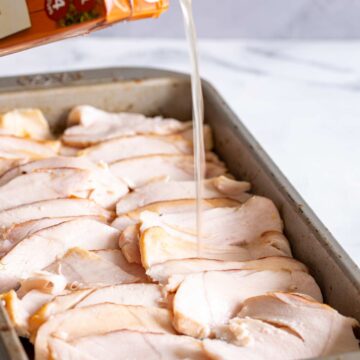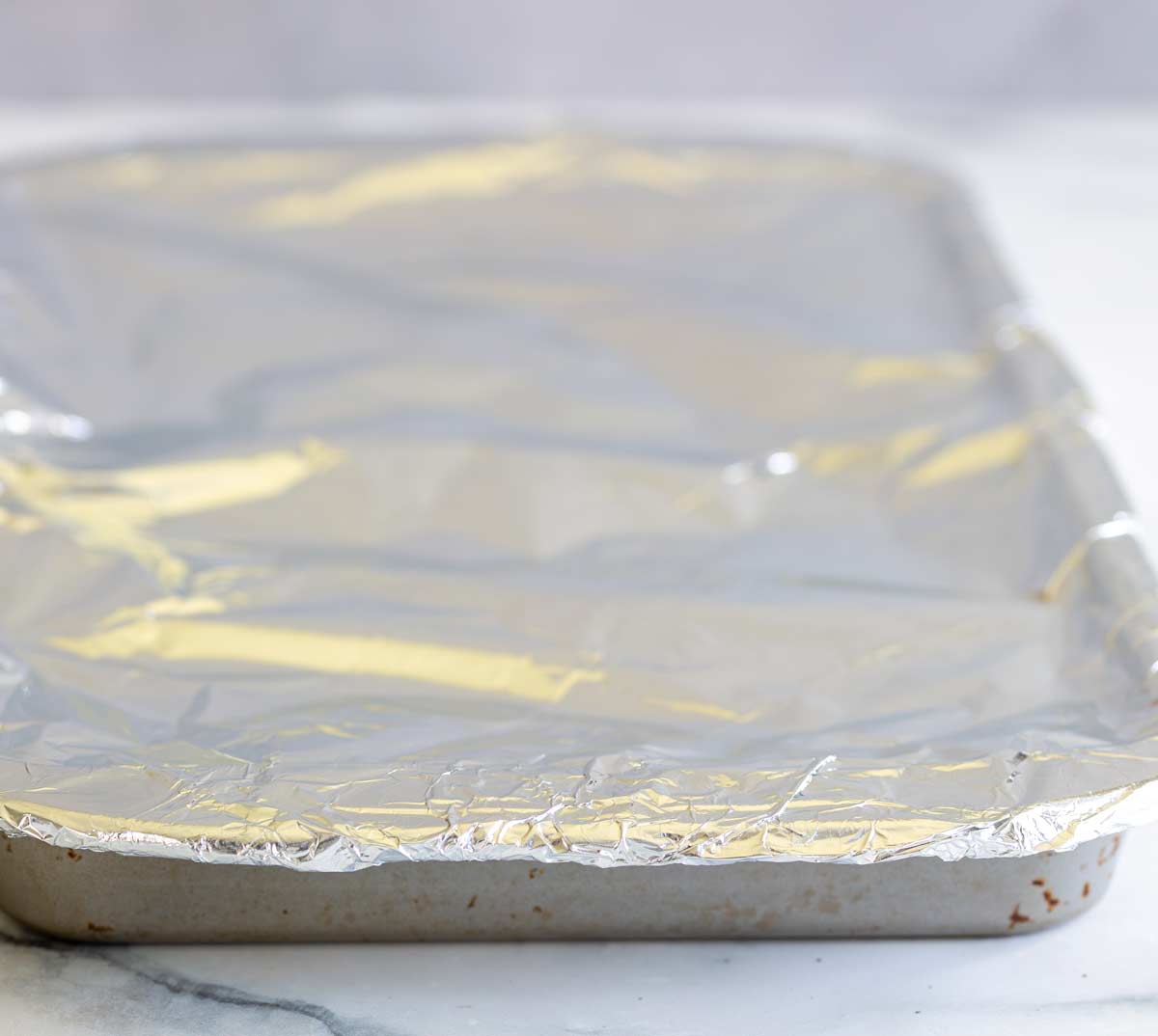Thanksgiving and Christmas are about family, friends, and food. And as the centerpiece of many holiday feasts, the turkey is a crucial element of the meal.
However, cooking a turkey can be challenging for even the most experienced home cooks. I understand how disappointing and frustrating it is when you’ve worked so hard to prepare a wonderful holiday meal—I’ve overcooked a few in my time!
Overcooking a turkey can result in tough, dry meat that is difficult to enjoy. Additionally, overcooked turkey can be less flavorful, as the heat can cause the natural juices to evaporate. I want to share with you today my best tip for preventing an overcooked turkey and enjoying a wonderful meal with your loved ones.
When cooking a holiday feast, broth or stock is your best friend!! That and a bit of butter!
If you can find it, turkey broth is the best option, followed by chicken and vegetable broth/stock.
You can make some without a carton by using a base of chicken or turkey bouillon, such as “Better than Bouillon.” “.
Ah, the dreaded tough turkey breast. It’s a common problem that can turn a festive meal into a chewy disappointment. But fear not, fellow turkey enthusiasts! This guide will help you troubleshoot the issue and ensure your future turkey breasts are juicy and tender.
Possible Causes of Tough Turkey Breast:
- Overcooking: This is the most common culprit. Turkey breast is a lean meat, and overcooking can quickly dry it out and make it tough.
- High cooking temperature: Starting with a high oven temperature can also lead to overcooking, especially if the breast is small.
- Lack of moisture: Turkey breast can become dry if it’s not properly basted or covered during cooking.
- Improper slicing: Slicing against the grain can make the meat even tougher.
- Using an old turkey: Older turkeys tend to be tougher than younger ones.
Troubleshooting Tips:
- Use a meat thermometer: This is the best way to ensure your turkey breast is cooked to the proper temperature (165°F).
- Start with a lower oven temperature: A lower temperature will help prevent overcooking. Aim for 325°F.
- Baste or cover the turkey breast: This will help keep it moist during cooking.
- Let the turkey breast rest: After cooking, let the turkey breast rest for 10-15 minutes before carving. This allows the juices to redistribute, resulting in a more tender bird.
- Slice across the grain: This will make the meat easier to chew.
Additional Tips for Tenderness:
- Brining: Brining is a great way to add moisture and flavor to turkey breast. Soak the breast in a salt-water solution for several hours before cooking.
- Using a slow cooker: Slow cookers are a great option for cooking turkey breast, as they help keep the meat moist and tender.
- Adding butter or oil: Adding a little butter or oil to the turkey breast before cooking can also help keep it moist.
Recommended Recipes:
- Slow Cooker Turkey Breast with Cranberry Sauce: A flavorful and easy recipe that’s perfect for a holiday meal.
- Herb-Roasted Turkey Breast: A classic recipe that’s sure to impress your guests.
- Turkey Breast with Gravy: A comforting and satisfying dish that’s perfect for a weeknight meal.
Remember:
- Don’t be afraid to experiment: There are many different ways to cook turkey breast, so find a method that works best for you.
- Practice makes perfect: The more you cook turkey breast, the better you’ll become at it.
With these tips and tricks, you’ll be able to say goodbye to tough turkey breast and hello to juicy, tender perfection!
And if all else fails
Have another drink and eat all your delicious sides. I promise that it is just a hiccup and youll laugh about it one day.
If you try this recipe, please come back and comment. You can also tag me on social media.
Any questions about the recipe? Use the comments section below.

Using broth to moisten the turkey
First things first: if you drink, pour a glass of wine and keep in mind that the holidays are all about family and friends. This especially applies if your turkey breast meat is overcooked. So take some deep breaths and move on. You cant go back and cook it less, but you can make it taste good.
Slice the turkey breast and lay it into a roasting dish. Drizzle over 2 tablespoons of melted butter, and then take your broth/stock and pour it over the slices.
The amount of broth required varies based on the size and degree of overcooking of your turkey, but I usually use about 1 cup per breast, or 2 cups for the entire bird.
Cover the dish with aluminum foil and seal the edges well. Then place in the oven at 200ºF/90ºC for 15 minutes. The turkey will soak up the broth/stock.
Next, pull the meat from your turkey legs. Usually, if the breast is overcooked, the legs are perfectly cooked!.
Transfer the leg meat to a separate dish, cover with ¼ cup of broth, seal the dish the same way, and keep warm in the oven.

Place the turkey slices on a serving platter and place the leg meat in one corner to serve. To thin the hot gravy, take ¼ cup of the gravy and stir in 2 tablespoons of hot broth. Drizzle the gravy over the turkey slices.
Why is my turkey tough after cooking?
FAQ
What to do if your turkey is tough?
What makes turkey tough and stringy?
How do you make turkey tender after cooking?
